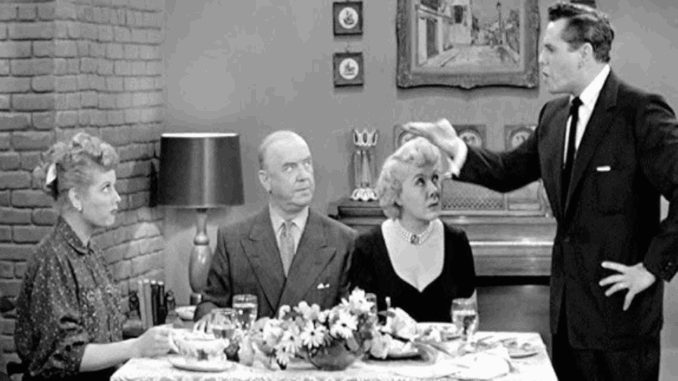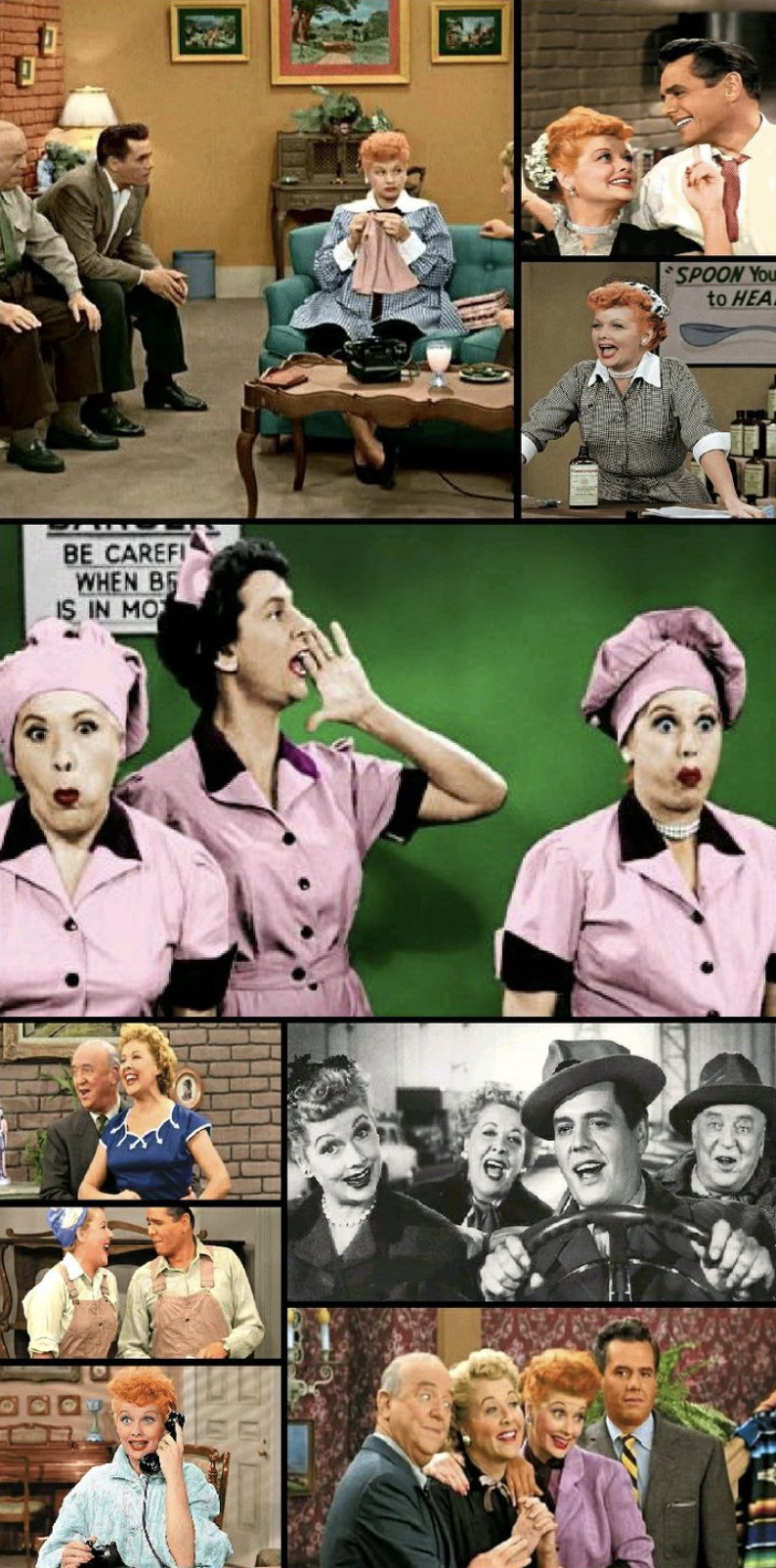
More than 70 years have passed since the first episode of I Love Lucy aired in 1951, yet the show’s appeal remains as strong as ever. Despite countless comedies emerging since, I Love Lucy stands firm as the “sitcom bible,” a benchmark for every subsequent generation of filmmakers. Why can a black-and-white show from the 50s still make Gen Z audiences today laugh out loud? The answer lies in its timeless comedy formulas, crafted by the genius of Lucille Ball and storytelling techniques that transcend eras.
Lucille Ball: A Master of Physical Comedy and Perfect Timing
The heart and soul of I Love Lucy was undoubtedly Lucille Ball as Lucy Ricardo. She wasn’t just a comedian; she was a phenomenon. What Lucille brought to the screen wasn’t just dialogue, but a total performance encompassing:
- Masterful Physical Comedy: Lucy Ricardo didn’t need many words to get a laugh. A quick wink, a desperately crumpled face, or clumsy, flustered movements were all turned into art by Lucille Ball. She could convey frustration, excitement, or panic with just a shrug or a hilarious fall. This ability allowed the humor to transcend language barriers, easily reaching every generation of viewers.
- Impeccable Comedy Timing: This is the key element that defines a successful comedian, and Lucille Ball was a true master. The way she paused, emphasized lines, or reacted to situations was perfectly calculated down to the second. Lucy Ricardo’s “smart innocence”—the wife who loved to scheme but always found herself in hilarious predicaments—was portrayed by Lucille with such authenticity that audiences felt both sympathy and amusement. She never faked foolishness but made it an endearing part of her character, making viewers believe in the absurd situations Lucy caused.
The 3-Step Comedy Formula: Timeless and Unchanging
One of the reasons I Love Lucy maintains its vibrant longevity is the show’s adherence to a tight, understandable, and incredibly effective comedy formula—a formula still widely applied today:
- The Setup: It begins with a simple, often innocent or seemingly logical goal for Lucy. She wants to get into her husband Ricky’s business, or she wants to be famous, or she wants to save money. The audience quickly grasps this desire.
- The Reversal: Lucy’s plan begins to spiral out of control. Instead of achieving her goal, things get worse, often due to her clumsiness, miscalculations, or over-ambition. The situation is reversed 180 degrees, creating surprise and tension.
- The Payoff/Blow-up: Everything culminates in a chaotic, climactic scene full of laughter. Ricky returns home to discover the mess Lucy has created, leading to hilarious scolding and Lucy’s despairing expressions. This is the moment the audience erupts in the biggest laughs.
A classic example is the scene where Lucy and Ethel work in the chocolate factory, where the conveyor belt moves too fast, and they have to stuff candies into their mouths and pockets to hide them. This scene builds from a simple goal (earning money), reverses as the conveyor belt speeds up, and explodes into an unforgettable chaotic spectacle.
Enduring Influence on Modern Sitcoms: From The Office to Abbott Elementary
This formula is far from outdated. Look at modern sitcoms like The Office or Abbott Elementary. Although they use a mockumentary style or explore contemporary social issues, you can still see the blueprint of the “Lucy formula.”
- In The Office, characters like Michael Scott often have a goal (e.g., throwing a fun party), then things go awry due to his clumsiness or ridiculous ideas, ending in chaos and awkward glances from the employees.
- Abbott Elementary also constructs situations from everyday school problems, only for everything to escalate into hilarious moments, often due to teacher Janine’s overzealousness.
The ability to make audiences laugh without relying on contemporary context or technological elements is the secret to I Love Lucy‘s enduring appeal. The show focuses on human nature, relatable predicaments that anyone can empathize with, and above all, the extraordinary talent of Lucille Ball. That’s why, after more than 70 years, I Love Lucy remains a “bible” that anyone who loves sitcoms must watch and learn from.
